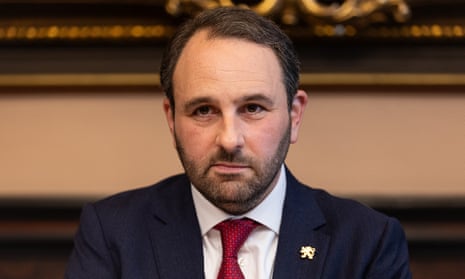My surprising journey began two years ago when friends and acquaintances who had visited London received hefty fines, some amounting to thousands of euros, for allegedly contravening London’s emissions zone regulations.
The letters accompanying the penalties accused them of entering the city’s low emissions zone (Lez) without paying the daily charge. The Lez primarily targets heavy, large commercial vehicles, and non-compliant users can be fined up to £2,000 a day. The twist? My friends were in family cars. Furthermore, their vehicles complied with the sister scheme for cars, the ultra low emissions zone (Ulez). Since Belgium has longstanding Ulez schemes of its own, most people own emissions-compliant cars.
I discovered that overseas drivers have to register their vehicles with Transport for London’s (TfL) debt collections agent, Euro Parking Collections, 10 days before entering London. Otherwise they face the £12.50 daily charge levied on older, more polluting vehicles. Yet, foreign drivers were not informed of this – either when booking their travel tickets or at key entry points into the UK or London. A perfect trap was set for unwitting overseas motorists who would now face fines, even if their vehicles met the Ulez standards. Adding insult to injury, these fines, issued by Euro Parking, often arrived months after their date stamp, well past the 28-day window for a 50% discount.
Initially, I doubted my influence over the UK’s traffic charging system. But as complaints escalated, so did my resolve. The situation reached a tipping point when a friend was fined an astonishing £4,500 for a three-day visit to London. I posed a question to the Belgian parliament, regarding the legality of these fines after Brexit. The minister for transport’s response was startling: post-Brexit, there’s no legal basis for sharing personal data with the UK for non-criminal offences such as Ulez breaches.
My attempts to engage with Euro Parking through emails and letters were met with silence. They must have hoped it would go away, but they chose the wrong man to mess with.
I contacted the EU privacy commissioner and the Belgian data protection authority, only to find they were powerless against a UK company. Similarly, the UK Information Commissioner’s Office stated its remit was only to protect UK citizens’ data.
The tale took a significant turn when I submitted a freedom of information request to Belgium’s vehicle licensing agency, the DIV. The findings were staggering: Euro Parking, denied direct access to Belgian driver details, had employed a local court bailiff who accessed the database more than 26,000 times and passed drivers’ names and addresses to Euro Parking.
Court bailiffs can collate specific driver details in order to enforce a court judgment; they are not allowed to search the database. They are certainly not allowed to share the information with a UK company.
In a quest for hard evidence, on my next visit to London I deliberately failed to pay the toll on the Dartford crossing. Six months later, I received the expected penalty. This gave me the leverage I needed to solve the mystery.
I made a “subject access request” to the DIV asking who had asked for my details and thus confirmed the bailiff’s illicit collaboration with Euro Parking.
Following my investigation, action was taken by the Belgian authorities: the bailiff’s access to the driver database was suspended and a criminal complaint was filed against it, and the Belgian embassy warned TfL about the data breaches on its behalf. Belgian drivers were informed that they need not pay these invalid fines and I wrote to the mayor of London, but received no reply.
However, a continuous stream of fines is still being sent to Belgian drivers. Euro Parking has now found a new way to access Belgian motorists’ data, this time via an agent in Italy who has access to the EU licence plate sharing system, Eucaris. Again, the UK is no longer party to this and cannot legally receive the driver details for civil enforcement. The Italian authorities have been notified and the agent’s access barred. It’s become a relentless game of cat and mouse.
Since Belgium currently holds the presidency of the Council of the EU, I’ve asked my government to seek a pan-European solution and claw back the hundreds of thousands of pounds of fines that I believe have been collected unlawfully.
It’s easy to dismiss data protection issues as a niche concern, but the human cost of this abuse is significant. Many Belgians are now reluctant to visit family in the UK in case they incur a fine. Others have had Euro Parking’s bailiff knocking on their door over unpaid, unlawful penalties. The mayor of London, Sadiq Khan, says London is open for business – but it’s at a very high price as far as Belgium is concerned.
Michael Freilich has been a member of the Belgian parliament, representing Antwerp, since 2019
